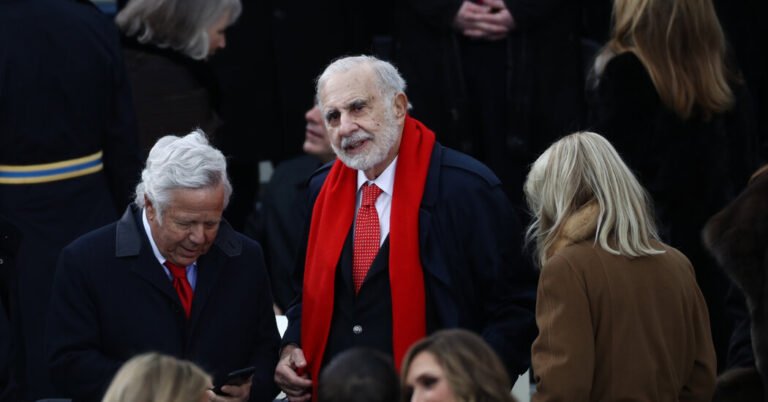
The activist investor Carl C. Icahn was charged by the Securities and Exchange Commission with failing to disclose that he had personally pledged his own stock as collateral for margin loans worth billions of dollars.
The charges were announced by the regulator on Monday along with a settlement, in which Mr. Icahn will pay $2 million in fines.
Investors are allowed to pledge stock holdings as collateral for loans, though it can add to risk for other shareholders in a company. If the investor cannot repay a loan, for example, then the shares may be sold by a lender, hurting the value of the stock.
The S.E.C. said Mr. Icahn had pledged more than half of all shares in his company, Icahn Enterprises, as collateral, but did not disclose the pledges for years. He only disclosed them in February 2022, the regulator said, but had pledged his stock to various lenders since at least late 2018.
Mr. Icahn, 88, owns roughly 86 percent of Icahn Enterprises. He is best known for his work as one of the first so-called corporate raiders or activist investors, where he buys stakes in companies and pushes management at those companies to make changes. Icahn Enterprises, in addition to buying stakes in companies to agitate for change, holds stocks, real estate and other investments.
The S.E.C. charges are the latest blow to Mr. Icahn whose business practices have been under scrutiny for more than a year since his company became a target of Hindenburg Research, the short-seller firm known for taking on the Indian tycoon Gautam Adani and Jack Dorsey, a Twitter co-founder.
Shares of Icahn Enterprises fell roughly more than 1 percent in Monday morning trading. Its stock is down more than 60 percent since Hindenburg released a report last year accusing the company of running “Ponzi-like economic structures.” Short sellers profit when stock prices fall. Hindenburg said Icahn Enterprises was paying shareholders a dividend it could not afford. In August 2023, Icahn Enterprises cut its dividend in half.
Jonathan Streeter, a partner at the law firm Dechert who represents Mr. Icahn, called Hindenburg’s report “self-serving” and said it made “false and totally irresponsible allegations.” This settlement, Mr. Streeter wrote in an emailed statement, is unrelated to the Hindenburg report and one that the firm corrected more than a year before the report was released.
In the email, Mr. Icahn called the Hindenburg report “false” and added that it was used to make money “on its short position at the expense of ordinary investors.” He added in an emailed statement: “Hindenburg’s modus operandi, which is to publish scurrilous and unsupported allegations, did damage to IEP and its investors.”
Hindenburg issued a rebuttal to Mr. Icahn on X, saying that Icahn was rightly charged for failing to disclose his margin loan but still operates a “ponzi-like structure.” He noted that Icahn Enterprises announced a $500 million buyback of its stock last year but has not bought back any stock. Hindenburg said it continued to hold a short position in Icahn Enterprise’s stock.